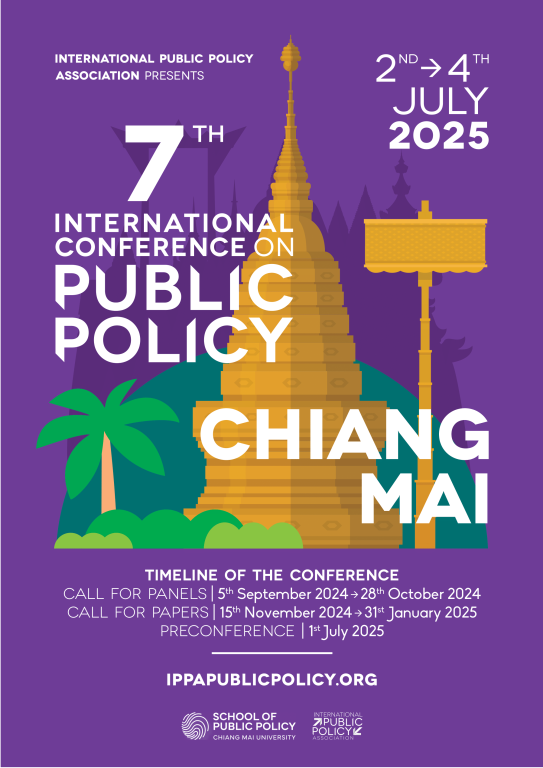Together with his colleague Meng-Hsuan Chou from NTU Singapore, our CHER member Jens Jungblut, from the Department of Political Science, Faculty of Social Sciences, University of Oslo, was successful in getting a panel accepted at the International Conference on Public Policy in Chiang Mai Thailand July 2-4, 2025.
Their panel is on "Comparing Higher Education Policy in Asia: Politics, Actors, and Processes" and you can find the call for papers below.
If you are interested in contributing to the panel, please submit your abstracts via the web site of the IPPA by January 31,2025: https://www.ippapublicpolicy.org/conference/icpp7-chiang-mai-2025/21.
The number of the panel is T21P05.
Comparing Higher Education Policy in Asia: Politics, Actors, and Processes
Asia is an exciting region for examining contemporary higher education politics and policies. Traditionally a sending region of international students, scholars, and scientists to established institutions in the West, Asian governments are transforming the region into an attractive global destination for scientific talents. This is visible in world university rankings where flagship universities from China, Singapore, Japan, Hong Kong, or South Korea are recognised alongside top institutions from the West. Asia is also where new initiatives facilitating intra-, inter-, and trans-regional higher education cooperation are observed; hence, positioning the region as a node in the global higher education landscape. As Asian governments strive to stabilise their higher education systems amid demographic pressures and skill shortages, the literature tells us that non-democratic states would struggle to meet the demands of widening higher education access at the risk of system stability. Asia is home to a variety of democratic and authoritarian regimes; thus, examining the Asian experience provides an opportunity to assess this assumed relationship between higher education policies and democratic development, and how governments in the region are meeting global challenges.
This panel invites papers addressing one or several of the following overarching themes. First, the politics of higher education governance reforms focusses on how governments steer higher education, and the tools used to ensure that universities meet state and societal expectations. Second, the politics of higher education finance covers how higher education is funded and the politics behind changes in the funding system. Third, the framing of higher education policy over time explores how governments talk about higher education policy and the linkages they create between this policy area and other issues (e.g., economic growth, social mobility). Fourth, the varieties of Asian higher education regionalism identify the forms of, and mechanisms driving, regional institutional and policy collaboration.
All contributions must be empirically-grounded in at least one Asian country case study and analytically address the following: how higher education policies evolve over time, the robustness of existing higher education analytical frameworks and concepts, and any regional specificities concerning the role(s) of key actors, discourses, and structures in policy processes.

